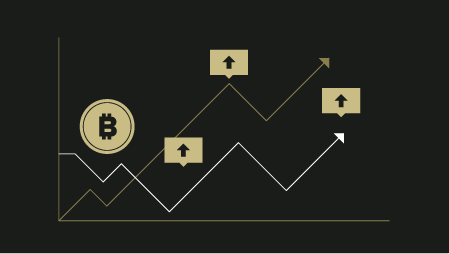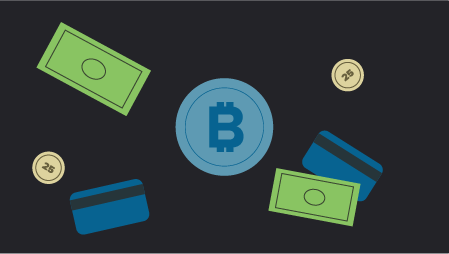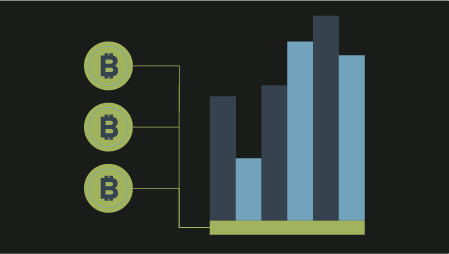What is blockchain technology’s role in building smarter cities, attracting human capital and cultivating industry 4.0?
A technologically accelerating and globalizing world means governments in both developed and developing countries must tackle increasingly complex issues from economic volatility and pandemics to mass migration, money laundering, and terrorism.
They must also find ways to bring prosperity in a rapidly changing global economy by attracting the businesses and industries that will succeed in the new digital economy.
Blockchain technology can serve as the digital foundation for the smart cities of the future helping governments raise their attractiveness and amplify their competitiveness in the new digital economy where human capital and industry are vital to success.
Current systems are failing, governments are running blind
In developing nations — An emerging middle-class demand for government services and high population growth have placed acute pressures on civil services. Outdated and disparate governance systems, widespread corruption and budgetary constraints have led governments to be unable to deliver essential services like healthcare and education to large swathes of the population. Inadequate record keeping systems have caused citizenry to lack official identification and property rights and resulted in vast informal economies and poverty.
In developed nations — Demographic stresses and aging populations are intensifying pressures on government budgets, forcing civil services to do more with less. Siloed record keeping systems that lack basic levels of interoperability and transparency have meant that there is a lack of actionable data available for economic, behavioral and infrastructure purposes.
With little meaningful data, governments remain unable to see the bigger picture and make informed decisions that can improve the lives of their citizens. Antiquated administrative systems at the national and regional levels are also eating away at the ability of governments to react effectively to crisis’ and fight against money laundering, corruption, organized crime, terrorist financing, and other destabilizing forces.
The root cause
Delivering efficient, sustainable and affordable government services to the world’s aging population and emerging middle class and attracting the businesses and industries that will succeed in the new digitally based economy will become increasingly difficult without substantive changes to current systems.
Although the challenges faced by governments are complex and widespread, the vast majority of problems trace back to a single, yet corrosive, root cause. Fragmented, siloed record keeping systems that lack interoperability have resulted in mismanagement, corruption, waste and a severe lack of advanced data available for economic, behavioral and infrastructure analysis.
To overcome the complex and diverse impediments to social and economic progress will necessitate governments rearm themselves with new capabilities.
Nations and cities that redesign their core systems based on blockchain and distributed ledger technologies will be rewarded with a resilient and antifragile digital infrastructure that enables the implementation of more potent government policies which meet the evolving demands of their citizens and deliver stability in a rapidly changing world.
A new foundation for competitiveness
Blockchain technology can create the resilient digital infrastructure necessary to enable the mass transformation of government administration to occur. This will allow governments to better assess the effectiveness of their services, deal with the changing demands of their citizens and tackle complex issues, making them more attractive to future industry and the intellectual elite.
The technology has key benefits in verifications, the movement of assets, ownership, and identity.
- The rapid verification of licenses, permits, transactions, and identities can be achieved with far greater accuracy, enabling the complete digitization of services and unprecedented efficiencies.
- Direct and automatic transfer of payments and other assets between government agencies and citizens for services rendered can eliminate excessive intermediary costs and redundancies. Entire government departments could be replaced by blockchain based registries saving billions of dollars of taxpayer funds.
- The technology’s decentralized, open & incorruptible nature makes it easier for governments to share data between government institutions and use sovereign data securely and eliminate government corruption/mismanagement which has long afflicted much of the developing world.
- Real-time analysis of pseudonymous data in transport, security, city planning, health and crime give civil service the ability to utilize resources in areas that will have the most profound impact on society.
- With a blockchain based identity registry, governments have the opportunity to issue e-identities to the population, making the frictionless digital use of a variety of national and municipal services a reality. Digital ID’s that act as a digital watermark to every transaction will help government agencies check identities in real-time, reducing the rate of fraud and other criminal activities and decreasing the costs associated with the provision of many public services.
By improving the capacity to analyze and manage trusted sovereign data, conduct instant digital asset transfers and ensure a high level of security, blockchain technology can deliver game-changing improvements for governments, their citizenry, and industry.
National and local governments with enhanced capabilities raise their attractiveness and amplify their competitiveness in the new digital economy where human capital and industry are vital to success.
“The truth about ‘Smart Cities’ is that there is only going to be one way that they can become truly ‘smart’: through data and analytics”.
Smart contracts introduce major efficiencies in compliance and enforcement. Despite unprecedented regulations and enforcement efforts over the past decade, governments are struggling in their fight against a growing and evolving tide of illicit activities.
Money laundering and terrorist financing are having a corrosive and corrupting impact on society as a whole and now pose a significant threat to the economic stability and security of almost every country in the world.
According to the United Nations, Office on Drugs and Crime (UNODC), Global money laundering transactions estimate at 2 to 5% of global GDP or roughly $1 to 2 trillion annually. Less than 1% of the global proceeds from these criminal activities are seized and frozen.
Regulators and industry have the opportunity to become far more potent by capitalizing on the technology’s ability to deliver greater accuracy and timeliness of monitoring activities. Rules set out by regulators could be hard-coded into a smart contract ensuring automatic compliance with specific AML & CFT regulations and triggering alerts for any predefined suspicious activity.
With hyper-efficiency brought about by smart contract automation in concert with greater accuracy and security, governments and smart cities gain the agility and robustness needed to overcome an array of serious threats and become world leaders.
A new foundation for the digital economy
Despite significant leaps in technology, government management and administrative systems at the national and regional levels remain relatively untouched by technology and stand ill-equipped to serve the current and future needs of their target populations.
These outdated systems are eating away at the ability of governments to react to crisis’, fight against money laundering and terrorist financing and deliver cost-effective programs to their citizens. They are also preventing countries and cities from becoming the economic leaders of tomorrow.
The harsh reality is that the very systems designed to assist civil servants to do their job have now become the biggest impediment to their current and future success.
The new digital economy requires nothing less than a new digital foundation. Economic competitiveness depends on a streamlined civil service with supercharged capabilities that deliver efficient services to citizens and enables industry to thrive.
Governments that embrace blockchain and distributed ledger technologies to reform civil services will be rewarded with a robust and agile digital infrastructure built for the hyper-connected and digitally-based economy that enables the cultivation of productive ecosystems, better public services, lower costs, and improves sustainable outcomes for all.



